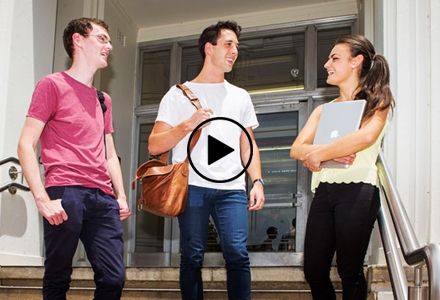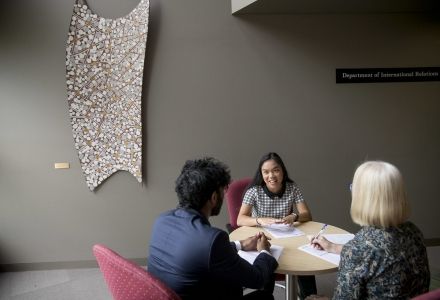
Master of General and Applied Linguistics
The human capacity for language is at the heart of the study of linguistics. The field encompasses the nature of different languages and the nature of language as a cognitive and social phenomenon. It asks questions such as: How do we communicate? In what ways are languages different and similar? How do we learn language?
You will focus on the nature and structure of language, as well as how to apply this knowledge in areas such as first and second language acquisition, communication within and across cultures, translation, forensic linguistics, language variation, language assessment, language policy and dictionary-making.
The breadth of study areas is greater than typical Master programs in the field, with a range of subjects across applied, theoretical and descriptive linguistics.
Our scholarship programs are designed to support students from diverse backgrounds and abilities, and we automatically consider applicants for some of them upon application.
*QS World University Rankings by Subject 2025
^Times Higher Education - Global University Employability Ranking 2025
Key facts
4 in Australia
57 for Linguistics in World*
#1 in Australia for graduate employability^
Career options
Your Masters degree can lead to a PhD, or advance your career in speech technology, education, translation and interpreting, language teaching, speech pathology, audiology, editing, language policy or language documentation.
Knowledge of how language works, how languages are learnt and what language does in society is relevant to a wide range of jobs and professions. Key work-related skills developed in the Master program are: language data collection and linguistic analysis, general research skills, writing skills and proficiency in another language.
Hear from our students
Watch the video
Fees, scholarships & apply
Tuition fees
Visit the handbook to see indicative fees and Commonwealth supported places for this degree.
Scholarships
ANU offers many scholarships both to overcome disadvantage and to recognise academic merit.
How to apply
You have decided that ANU is the right university for you. Ready to take the next step?
Learn more

Check our series of videos about degree programs, majors and disciplines, and research strengths for your enjoyment.


